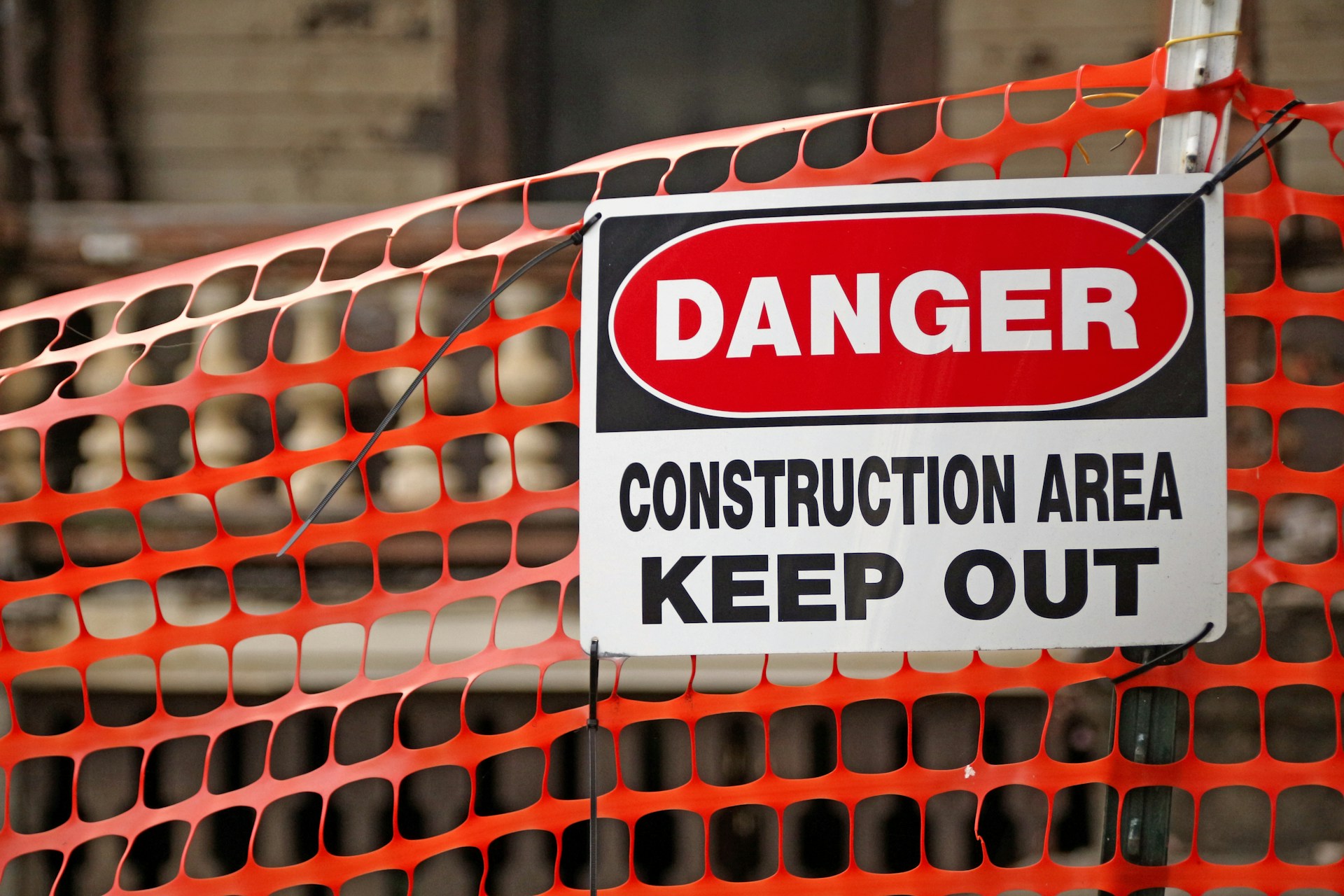At EB3 Construction, we understand the inherent risks associated with the construction industry. A single accident or mishap on a job site can quickly lead to a financial nightmare without proper protection. This is why contractor liability insurance is a crucial safeguard for our business operations and financial security.
Consider this common scenario: A visitor trips over equipment at your work site, sustaining injuries that require medical treatment. Without liability coverage, you could be responsible for tens of thousands in medical bills and legal fees. Or imagine faulty workmanship leads to property damage at a client’s home months after project completion. Again, repair costs could be overwhelming if you lack insurance.
Contractor liability insurance provides that essential layer of financial protection, allowing us to concentrate on delivering quality construction work instead of worrying about potential claims. It demonstrates our commitment to professionalism and responsibility, giving clients added confidence in our services. While premiums are an ongoing expense, the peace of mind and financial security far outweigh the costs.
Industry data underscores just how crucial this coverage is—the average construction liability claim exceeds $100,000 according to recent studies. For many contractors, an uninsured loss of this magnitude could force them out of business. By maintaining robust liability insurance, we ensure that a single incident won’t derail our entire operation.
What Common Risks Does Contractor Liability Insurance Cover?

Contractor liability insurance protects construction professionals against various key risks they face daily. Here’s a breakdown of the main types of coverage:
- Bodily injury to third parties: If a visitor to your job site slips on a wet surface and gets injured, your policy would cover their medical expenses and legal costs if they sue.
- Property damage: Accidents happen, even to the most careful contractors. If you accidentally cut through a water pipe while renovating a bathroom, causing flooding damage, your insurance would cover the repair costs.
- Personal and advertising injury: This protects you from claims of libel, slander, copyright infringement, or other reputational harm in your advertising or business operations.
- Medical payments: Provides coverage for minor injuries to third parties, regardless of fault, to help prevent lawsuits.
- Legal defense costs: If you face a lawsuit related to your work, your policy will cover attorney fees, court costs, and settlements up to your coverage limits.
Many contractors opt for policies that provide $1 million in coverage per occurrence, with a $2 million aggregate limit for the policy period. This level of protection safeguards against common risks without being prohibitively expensive.
Here’s a real-world example of how this coverage can be invaluable: A general contractor was overseeing a home renovation when a piece of scaffolding fell, striking a passerby on the sidewalk. The injured person sued for $500,000 in medical bills and lost wages. Thanks to the contractor’s liability policy, the insurance company handled the entire claim—from hiring a defense attorney to negotiating the settlement. Without this coverage, the contractor likely would have faced financial ruin from this single incident.
By offering protection against these common risks, contractor liability insurance allows construction professionals to focus on their work with increased peace of mind. It serves as an essential safeguard in an industry where even small mistakes can have significant consequences.
| Coverage Type | Description | Example |
|---|---|---|
| Bodily Injury | Covers third-party injuries occurring on site | A visitor slips on a wet surface at a job site |
| Property Damage | Covers accidental damage to client property | Flooding damage from cutting a water pipe |
| Personal and Advertising Injury | Protects against claims of libel, slander, etc. | Slander claim from advertising |
| Medical Payments | Covers minor injuries to third parties without lawsuits | Minor cut treated on-site without legal action |
| Legal Defense Costs | Covers legal fees and settlements | Attorney fees for a lawsuit from a construction incident |
Why Do Clients and Project Owners Require Contractor Liability Insurance?

Clients and project owners typically require contractors to carry liability insurance for several important reasons. Primarily, it ensures contractors can manage liability claims that may arise during projects. Many construction contracts stipulate that contractors must provide proof of coverage before work can begin, with clients often seeking a minimum of $2 million in aggregate coverage.
Having proper insurance also enhances a contractor’s professional reputation. It shows clients that the contractor is prepared for potential mishaps and takes risk management seriously. As one project owner put it, ‘I won’t work with contractors who can’t show me they’re insured. It tells me they’re not thinking ahead about protecting the project and my interests.’
Additionally, some states and municipalities legally require contractors to maintain certain coverage levels. Failing to meet these requirements can result in penalties, legal issues, and loss of licensure. Contractors should always check local regulations to ensure compliance.
When discussing insurance requirements with clients, contractors should ask:
- What specific coverage types and limits are required?
- Will I need to list the client as an additional insured?
- How often will I need to provide updated certificates of insurance?
- Are there any special endorsements needed for this particular project?
By proactively addressing insurance needs, contractors can build trust with clients and avoid delays in starting projects. Remember, insurance isn’t just a box to check – it’s a crucial tool for protecting everyone involved in a construction project.
| Coverage Type | Description |
|---|---|
| Bodily Injury | Provides coverage for medical expenses and legal costs if a third party is injured at the job site. |
| Property Damage | Covers repair costs for damage to a client’s property during construction. |
| Personal and Advertising Injury | Protection against claims of libel, slander, and copyright infringement. |
| Medical Payments | Offers coverage for minor injuries to third parties to prevent lawsuits. |
| Legal Defense Costs | Covers attorney fees, court costs, and settlements up to the coverage limits. |
How Does Contractor Liability Insurance Impact Business Success?
Contractor liability insurance is more than just a safety net—it’s a powerful tool that can significantly impact a construction company’s success and growth. We recognize its importance in protecting our business and building trust with clients, which is why EB3 Construction prioritizes comprehensive coverage.
First and foremost, having robust liability insurance demonstrates business maturity and responsibility. When bidding on projects, especially larger contracts, clients often require proof of insurance before considering a proposal. By maintaining appropriate coverage, we position ourselves as a reliable, professional outfit ready to take on substantial projects. This opens doors to more lucrative opportunities that can fuel our company’s expansion.
Beyond winning bids, liability insurance provides crucial protection for our livelihood. Construction inherently involves risks, and even with rigorous safety protocols, accidents can happen. A single major claim without insurance could potentially bankrupt a contractor. With proper coverage, we can focus on delivering quality work without the constant worry of financial ruin looming over every project.
The security provided by liability insurance extends beyond just claim protection. Many property owners and managers require proof of insurance before allowing contractors to rent office space, storage facilities, or equipment yards. By maintaining coverage, we ensure we can secure the physical infrastructure needed to operate and grow our business effectively.
Perhaps most importantly, liability insurance allows us to focus our energy and resources on business development rather than constant risk mitigation. Instead of building up large cash reserves to self-insure against potential disasters, we can reinvest in equipment, training, and marketing to expand our capabilities and client base. This forward-looking approach is essential for long-term success in the competitive construction industry.
While the direct financial protection of liability insurance is clear, its impact on business reputation and client relationships shouldn’t be underestimated. In an industry where word-of-mouth referrals are gold, being known as a fully insured, responsible contractor can lead to a steady stream of new business opportunities. We make a point of highlighting our comprehensive coverage in marketing materials and client discussions, as it serves as a powerful differentiator from less professional outfits.
At EB3 Construction, we view our liability insurance as an investment in our future, not just an expense. By providing a foundation of financial security and professional credibility, it enables us to take on ambitious projects, expand our services, and build lasting relationships with clients and partners. In the dynamic world of construction, that peace of mind and freedom to grow is invaluable.
What Factors Affect Contractor Liability Insurance Costs?

Several key factors influence the cost of contractor liability insurance. We carefully analyze each of these elements when determining premiums for our clients:
Type of Work Performed
The nature of a contractor’s projects significantly impacts insurance rates. High-risk activities like demolition or roofing typically command higher premiums compared to lower-risk work such as interior remodeling or painting. This is due to the increased likelihood of accidents and potential claims associated with more hazardous trades.
Company Size and Revenue
A contractor’s annual revenue, payroll amounts, and number of employees all factor into pricing. Larger operations generally face greater exposure to risks, which can lead to higher premiums. However, we work with contractors of all sizes to find appropriately scaled coverage options.
Claims History
Prior claims history plays a major role in determining rates. Contractors with clean records typically earn lower premiums, as they’re viewed as lower-risk. We carefully review each client’s past claims to assess their risk profile accurately.
Policy Structure and Coverage Limits
How a policy is structured can affect its cost. For example, paying annually often results in lower overall premiums compared to installment plans. While higher coverage limits do increase premiums slightly, the difference between $1 million and $2 million in aggregate coverage is often minimal – typically only $40-100 more per year.
Location and Regional Factors
Where a contractor operates can influence rates due to varying regional risks and regulations. For instance, areas prone to severe weather or with strict building codes may see higher premiums to account for those factors.
| Contractor Size | Annual Premium Range |
| Sole Proprietor | $400 – $1,500 |
| Small Crew (2-5 people) | $1,500 – $4,000 |
| Medium Size (6-20 employees) | $4,000 – $15,000 |
| Large Operations (20+ employees) | $15,000 or more |
Practical Tips for Reducing Premiums
We advise our clients on several strategies to help manage their insurance costs:
- Implement comprehensive safety programs and provide regular employee training
- Maintain detailed records of safety procedures and incident reporting
- Consider higher deductibles if your company can shoulder more financial responsibility
- Bundle multiple policies (like general liability and workers’ compensation) for potential discounts
- Regularly review and update your coverage to ensure it aligns with your current operations
By understanding these factors and working closely with our team, contractors can find the right balance of comprehensive coverage and cost-effectiveness for their liability insurance needs. We’re committed to helping our clients navigate these complexities to secure the protection their businesses require.
Conclusion: Maintaining Effective Contractor Liability Coverage

Contractor liability insurance is an essential safeguard for construction professionals, protecting against financial losses from accidents, property damage, and liability claims. Although premiums represent an ongoing cost, the financial protection and professional credibility provided are invaluable for business success. To ensure your coverage is effective, we recommend contractors regularly review policies with agents, check for business changes affecting terms or limits, and maintain strong safety practices.
By understanding coverage needs and staying proactive about risk management, contractors can focus on their craft with the assurance that their business is protected against unexpected events. As your construction business grows and evolves, your insurance needs may change as well. Periodic policy reviews and updates ensure you maintain optimal protection tailored to your current operations.
Proper liability coverage provides peace of mind, allowing you to take on new projects and grow your business confidently. We encourage all contractors to schedule an annual insurance review with a trusted agent to evaluate your existing coverage and identify any potential gaps or areas for improvement. With the right insurance partner and proactive approach, you can protect your hard-earned success for years to come.
To learn more about optimizing your contractor liability coverage, contact EB3 Construction today to speak with one of our experienced risk management professionals.




